10 Things Couples Argue About the Most on Thanksgiving (And How to Avoid Them)
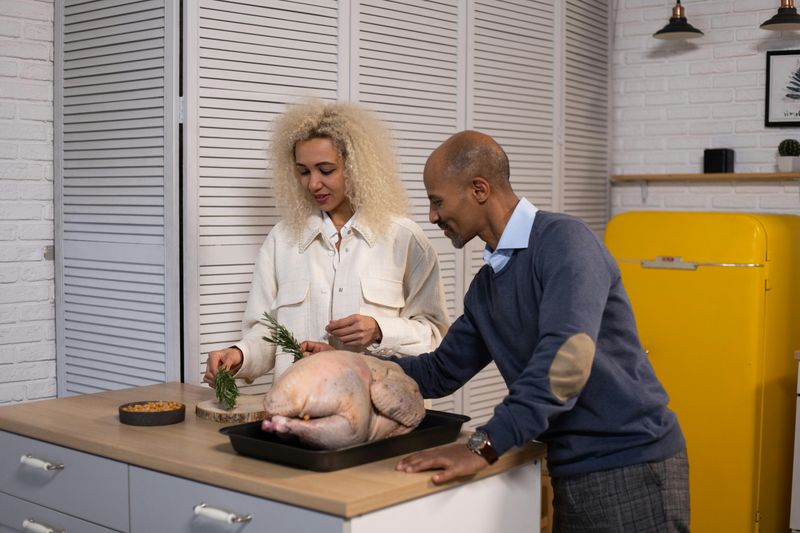
Thanksgiving is supposed to be a time for gratitude, connection, and celebration. But for many couples, the holiday can bring unexpected tension and conflict. Between juggling family obligations, managing expectations, and dealing with holiday stress, it’s easy for small disagreements to turn into bigger arguments that put a damper on the day.
1. Where to Spend the Holiday

Deciding whose family to visit can feel like choosing sides, and nobody wants to disappoint their parents or siblings. This annual dilemma causes stress because both partners feel pulled in different directions, and someone always seems to lose out.
Planning ahead is your best defense. Consider alternating years between families, or try splitting the day if both homes are nearby. Some couples even start hosting at their own place, creating neutral ground.
Whatever you decide, communicate your plan early so families aren’t surprised. Being proactive about this decision removes last-minute pressure and helps both of you feel heard and respected in the relationship.
2. Different Expectations of the Perfect Thanksgiving
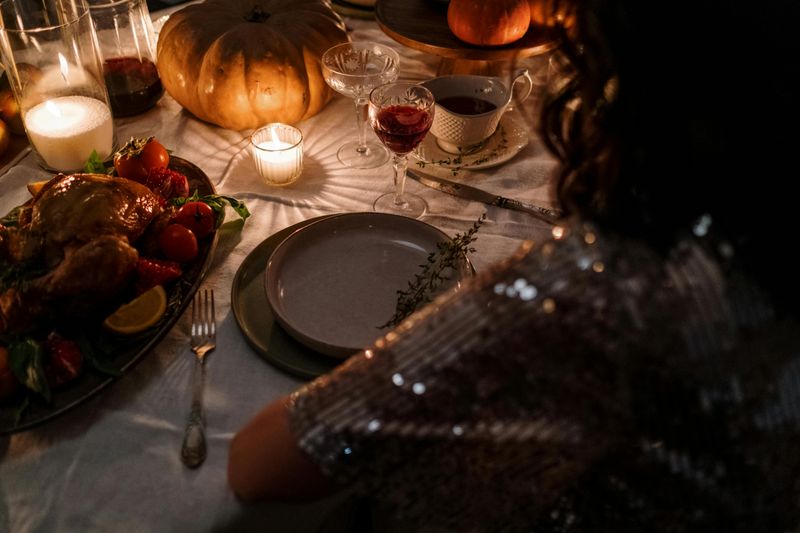
One of you might dream of a formal dinner with china plates and matching napkins, while the other imagines sweatpants and leftovers on the couch. These conflicting visions can lead to frustration when reality doesn’t match what either person pictured.
Talk about your expectations well before the turkey goes in the oven. Share what matters most to each of you and find common ground. Maybe you dress up for dinner but keep the vibe relaxed, or you cook together instead of stressing alone.
Compromise doesn’t mean giving up what you love. It means blending your traditions into something new that honors both perspectives and creates memories you’ll both cherish.
3. Budget and Hosting Responsibilities

Thanksgiving can get expensive fast, especially when you’re hosting. Between the turkey, sides, drinks, and decorations, costs add up. When one partner feels like they’re doing all the work or spending all the money, resentment builds quickly.
Sit down together and create a realistic budget before shopping begins. Decide what you can afford and stick to it. Then divide the tasks fairly—if one person cooks, the other cleans or handles setup.
Being intentional about sharing responsibilities prevents burnout and arguments. Nobody should feel like they’re carrying the entire holiday on their shoulders while their partner relaxes.
4. Old Family Dynamics Resurfacing
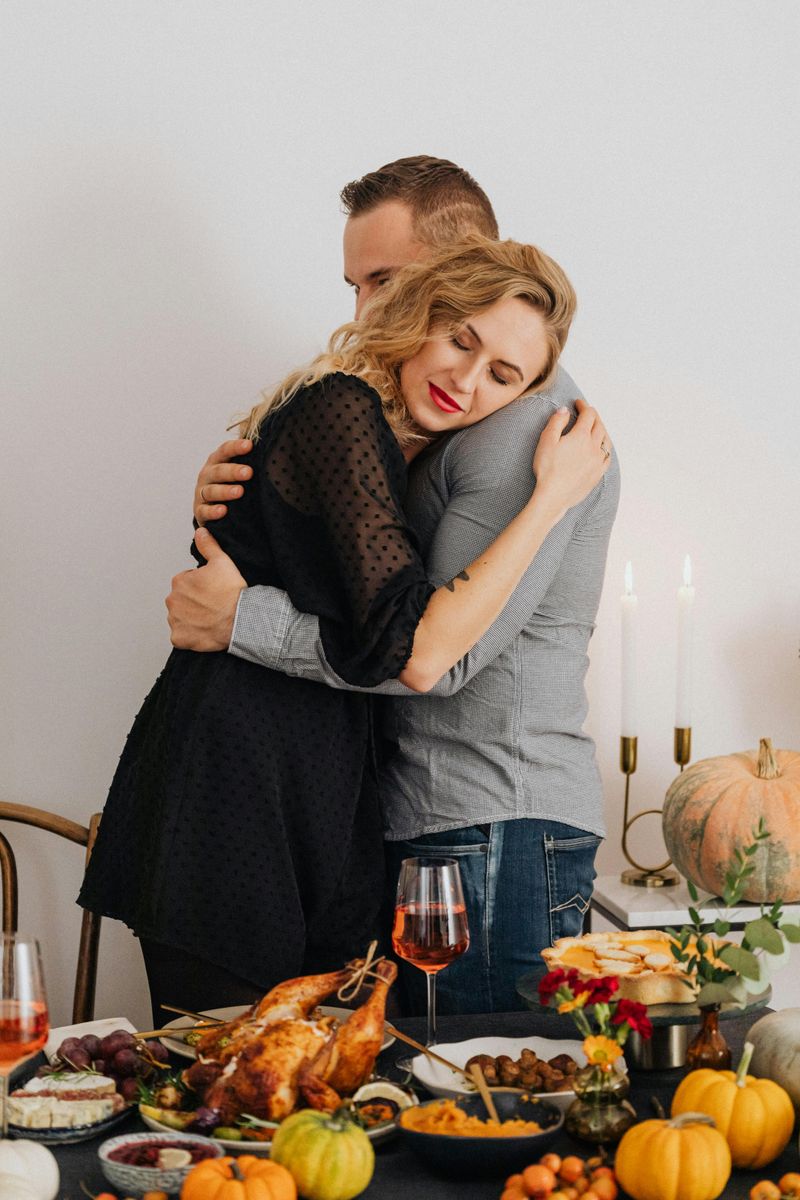
Walking back into your childhood home can trigger old patterns you thought you’d left behind. Maybe your mom still treats you like a kid, or your sibling brings up ancient rivalries. These dynamics can put strain on your relationship when your partner witnesses or gets caught in the middle.
Before you arrive, talk openly about potential triggers or difficult family members. Create a signal or code word you can use if things get uncomfortable. Check in with each other quietly throughout the day.
Remember, you’re a team now. Supporting each other through awkward family moments strengthens your bond and helps you navigate the holiday without letting old baggage damage your connection.
5. Clashing Traditions or Values
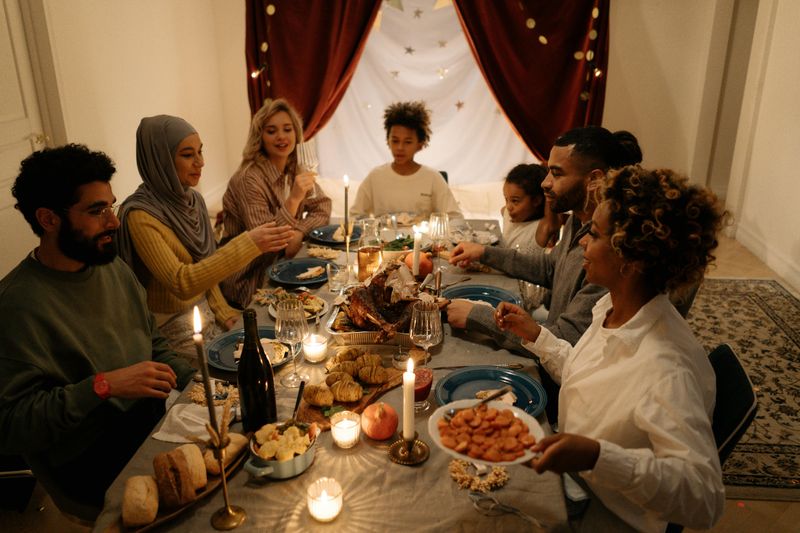
Maybe your family always watches football while hers never turns on the TV. Perhaps you grew up with pumpkin pie and he only knows pecan. When traditions collide, it can feel like your entire childhood is being questioned or dismissed.
Instead of battling over whose way is right, get creative and blend your backgrounds. Cook both pies, watch one game and then play board games, or rotate activities each year. Building new traditions together doesn’t erase your past—it honors both histories.
This approach transforms potential conflict into an opportunity for connection. You’re not choosing between families; you’re creating your own unique celebration that reflects who you are as a couple.
6. Lack of Couple Time

Between hosting duties, entertaining guests, and visiting multiple houses, you barely see each other all day. The holiday becomes so packed with obligations that you lose sight of your connection, leaving both of you feeling lonely despite being surrounded by people.
Protect your relationship by scheduling even fifteen minutes alone together. Take a walk before dinner, sneak away for coffee, or decompress together after guests leave. These small moments matter more than perfect place settings.
Your relationship is the foundation everything else is built on. Neglecting it during the holidays creates distance that’s hard to bridge later, so make time for just the two of you a non-negotiable priority.
7. Stress, Fatigue, and Travel Strain

Thanksgiving rarely happens without some chaos. Traffic jams, delayed flights, burned dishes, and exhaustion all pile up fast. When you’re running on fumes, tiny annoyances—like forgetting the cranberry sauce—can spark major fights that wouldn’t happen on a normal day.
Acknowledge upfront that the holiday will be hectic and tiring. Give each other grace when someone snaps or forgets something. Build in breaks where you can rest, even if it’s just sitting quietly for ten minutes.
Recognizing that stress is temporary helps you keep perspective. You’re not actually mad about the cranberry sauce—you’re just overwhelmed. Understanding that difference keeps arguments from escalating unnecessarily.
8. Sensitive Conversation Topics
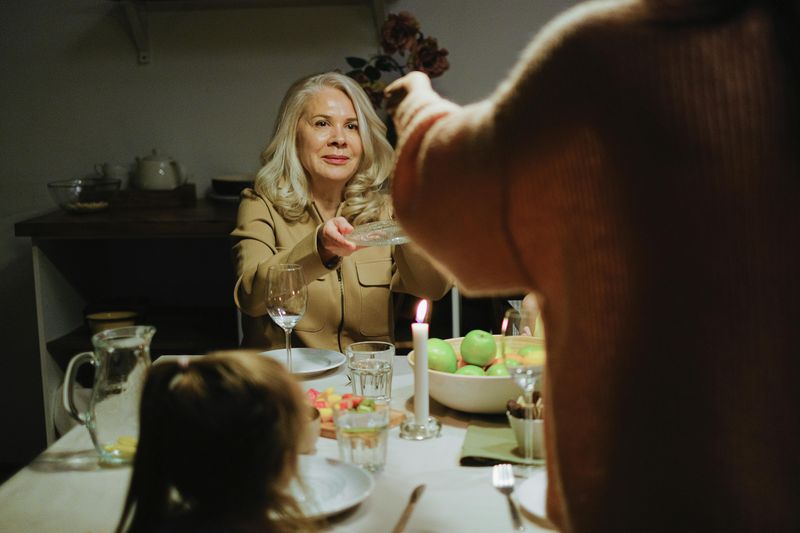
Family dinners have a way of bringing up the topics everyone should avoid: politics, religion, money, or parenting choices. When Uncle Bob starts talking about controversial issues, you and your partner might have different ideas about whether to engage, defend, or deflect, creating tension between you.
Discuss beforehand how you’ll handle hot-button topics. Will you politely change the subject? Excuse yourselves from the table? Present a united front? Having a game plan prevents you from blindsiding each other or arguing about how the situation was handled.
Sometimes the best strategy is simply agreeing to let things go. Protecting your peace and your relationship matters more than winning debates at the dinner table.
9. Unequal Mental Load

Planning Thanksgiving involves way more than cooking. Someone has to coordinate schedules, remember dietary restrictions, buy groceries, clean the house, set the table, and manage everyone’s expectations. When one person handles all the invisible work, exhaustion and resentment follow quickly.
Make the mental load visible by creating a shared checklist. Write down every task, then divide them fairly based on time and skill. Both partners should feel equally responsible for making the holiday happen.
Sharing the burden isn’t just about fairness—it’s about partnership. When both people contribute equally to planning and execution, the holiday becomes something you create together instead of something one person endures alone.
10. Disappointment When Things Go Wrong

No matter how carefully you plan, something will probably go wrong. The pie burns, someone shows up late, the weather ruins travel plans, or dinner doesn’t look Instagram-worthy. When expectations are sky-high, these inevitable mishaps can trigger arguments and ruin the mood for everyone.
Stay flexible and remember that perfection isn’t the goal—connection is. Laugh about the burnt pie instead of crying over it. Focus on gratitude for what did work rather than obsessing over what didn’t.
The best Thanksgiving memories often come from the imperfect moments that become funny stories later. Embracing the chaos with humor and grace keeps disappointment from stealing your joy and damaging your relationship.

Comments
Loading…